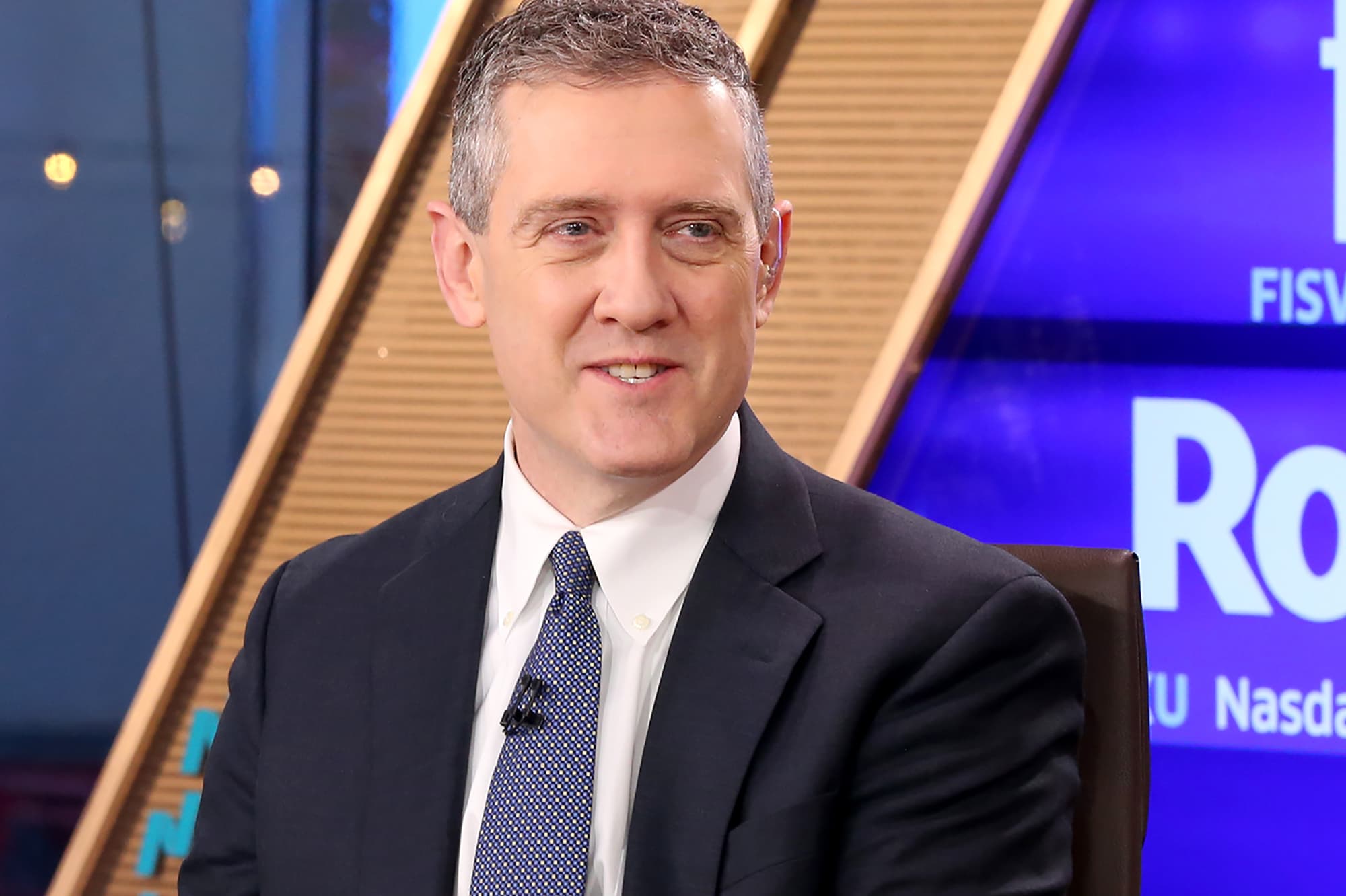NEW YORK — St. Louis Federal Reserve President James Bullard cautioned Thursday that without central bank action on interest rates, inflation could become an even more serious problem.
“We’re at more risk now than we’ve been in a generation that this could get out of control,” he said during a panel talk at Columbia University. “One scenario would be now you get a new surprise that hits us that we can’t anticipate right now, but we would have even more inflation. That’s the kind of situation that we want to … make sure it doesn’t occur.”
Bullard has made news lately with his calls for aggressive Fed action. He has advocated for a full percentage point of rate increases by July in an effort to stem price surges that are running at the fastest pace in 40 years.
In his remarks Thursday, he repeated his assertion that the Fed should “front-load” rate hikes as way to get ahead of inflation running at a 7.5% pace over the past year.
Fed officials had been resisting tightening policy, insisting for much of last year that the current run was tied to pandemic-specific factors, such as clogged supply chains and outsized demand for goods over services, and would fade over time.
“Overall, I’d say there’s been too much emphasis and too much mindshare devoted to the idea that inflation will dissipate at some point in the future,” Bullard said. “We’re at risk that inflation won’t dissipate, and 2022 will be the second year in a row of quite high inflation. So that’s why given this situation, the Fed should move faster and more aggressively than we would have in other circumstances.”
The Fed has indicated it likely will start raising interest rates in March, which would be the first increase in more than three years. After that, markets are looking for an additional five or six increases in 25-basis-point increments. A basis point is 0.01 percentage point.
Bullard said the upcoming change in policy shouldn’t be viewed as an attempt to restrict the markets and the economy.
“It’s not tight policy. Don’t let anybody tell you it’s tight policy,” he said. “It’s removal of accommodation that will signal that we take our responsibility seriously.”
Market pricing for rate hikes has tempered over the past day or two, particularly after a release Wednesday of the January meeting minutes showed Fed officials are looking to take a measured approach towards the removal of policy help.
Traders are now pointing to a 25-basis-point hike in March, after previously looking to a 50-basis-point move, according to CME data. The probability for seven hikes dropped Thursday to 43% after approaching 70% earlier in the week.
